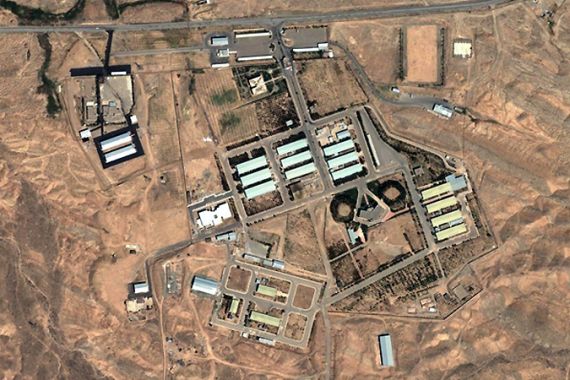Iran refuses to open key base to IAEA
Iranian defence minister says Tehran will not allow UN agency’s nuclear inspectors into Parchin base.

Iran will not give UN nuclear inspectors access to a military base that they have been seeking to visit since 2005, Iranian Defence Minister Hossein Dehgan has said.
Dehgan’s comments came just two days before a deadline for Iran to give its response to the IAEA, the UN’s nuclear agency, over allegations of a military dimension to its nuclear research.
There is... no reason for new access to Parchin as nothing new has come up since the last inspections.
“The agency carried out several visits to Parchin [before 2005], took samples and found nothing untoward,” Dehgan told the Iran’s ISNA news agency.
“There is therefore no reason for new access to Parchin as nothing new has come up since the last inspections.”
IAEA inspectors have been given access to a string of declared nuclear sites as part of an interim nuclear deal reached with the major powers last November.
Access to Parchin, which is located outside the capital, Tehran, was not agreed under the terms of that accord, but the IAEA has been seeking to visit the base as part of its mission to answer all concerns about Iran’s nuclear programme, past and present.
IAEA director Yukiya Amano, who visited Tehran earlier this month, said in June that access to Parchin was essential for the watchdog to be able to certify Iran’s nuclear programme as peaceful.
The base lies at the centre of allegations of past Iranian research into sophisticated explosives that can be used to detonate a nuclear warhead.
In his June report, Amano said satellite photographs suggested there had been fresh activity at the base this year.
Negotiations ongoing
Addressing the allegations, long denied by Tehran, would be an important element in the comprehensive deal on Iran’s nuclear programme that world powers are seeking to reach by November 24.
Iran and the group of P5+1, consisting of permanent members of the UN Security Council and Germany, signed an interim deal last November and are in discussions to secure a more permanent accord. The target date for a final deal has been put back to November 24.
Iran’s political negotiations with P5+1 is a separate process from the inquiry of IAEA, which Iran is a member of, meaning it assures that it will not possess nuclear weapons.
Last year’s key interim deal between Iran and P5+1 partially froze Iran’s nuclear activities in return for minor sanctions relief but the gap in terms of demands between the two sides remains large.
While some differences have been reconciled there are disagreements over how much uranium Iran would be allowed to enrich and on the lifting of international economic sanctions.
A new round of talks between the two sides is expected before the UN General Assembly starts on September 16.
An accord would see Iran scale back its nuclear activities and in return Tehran would be granted relief from UN and Western sanctions.